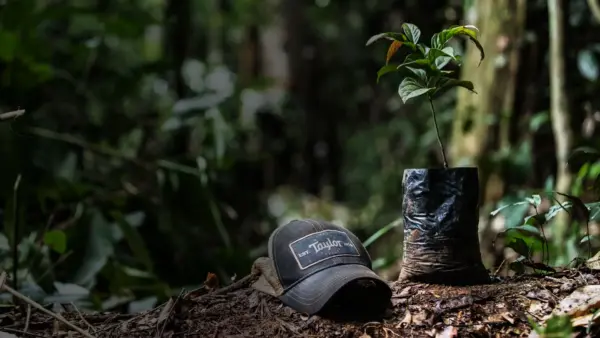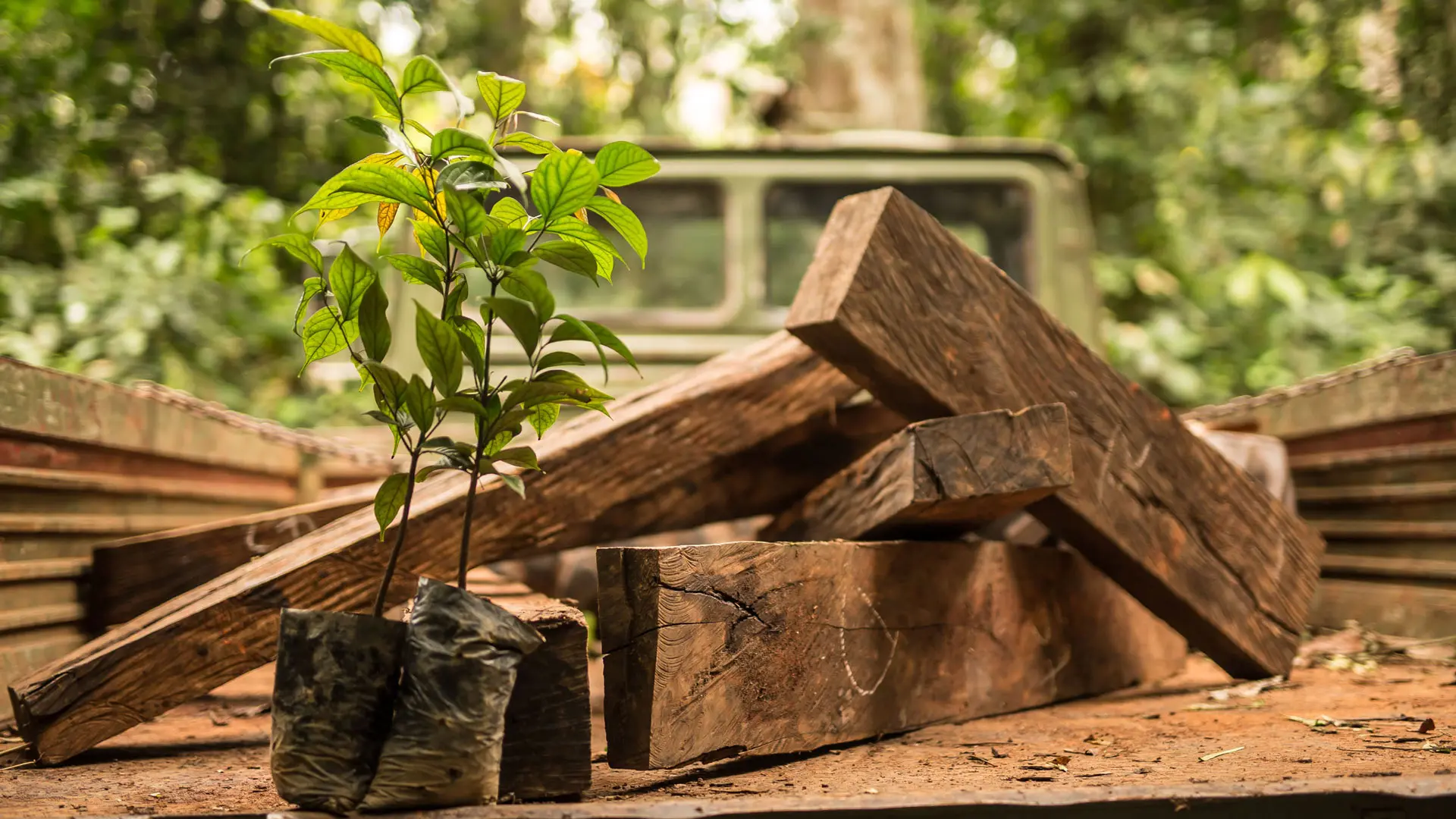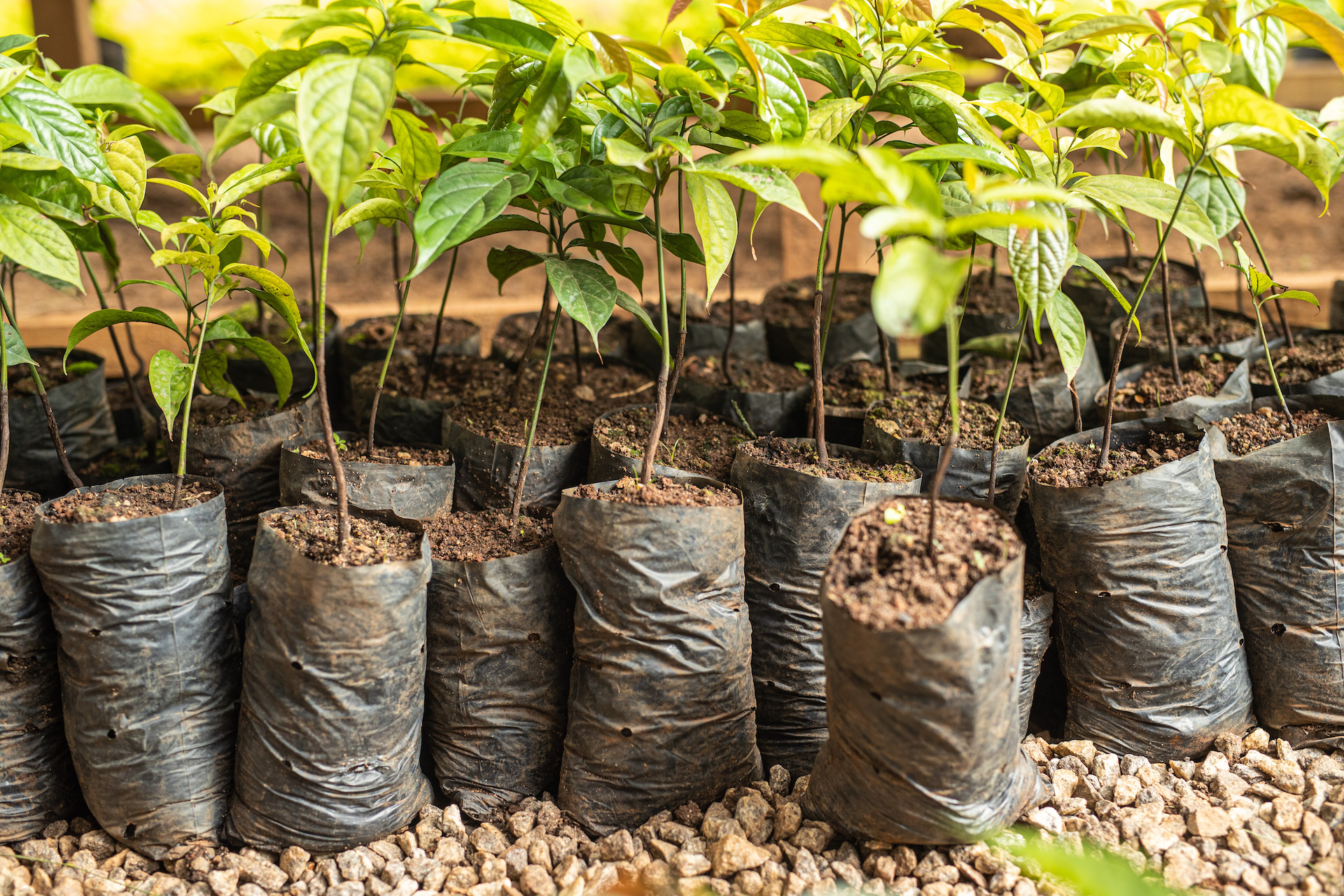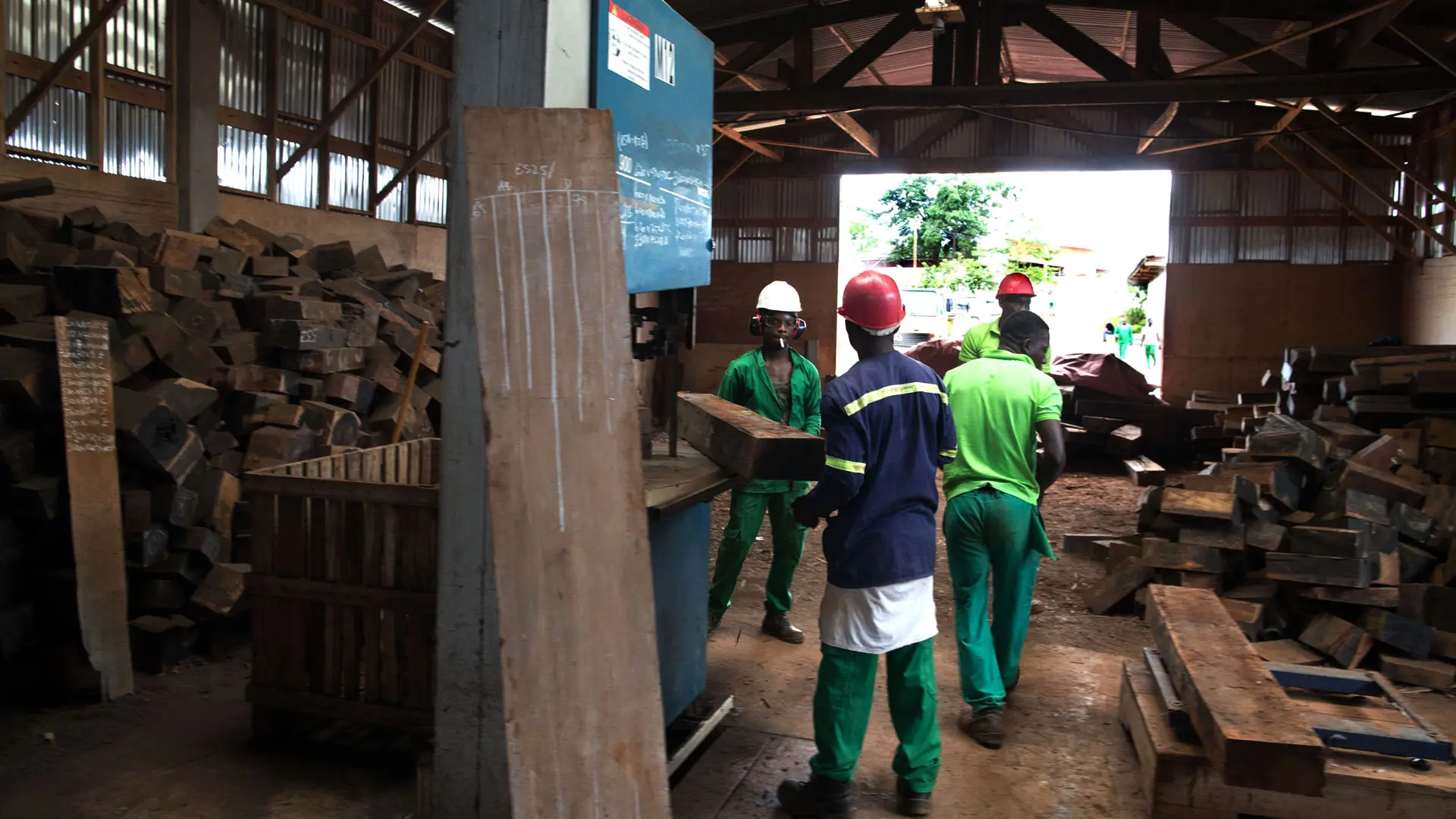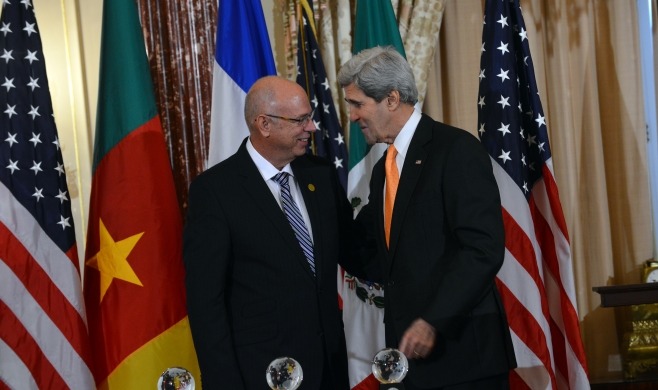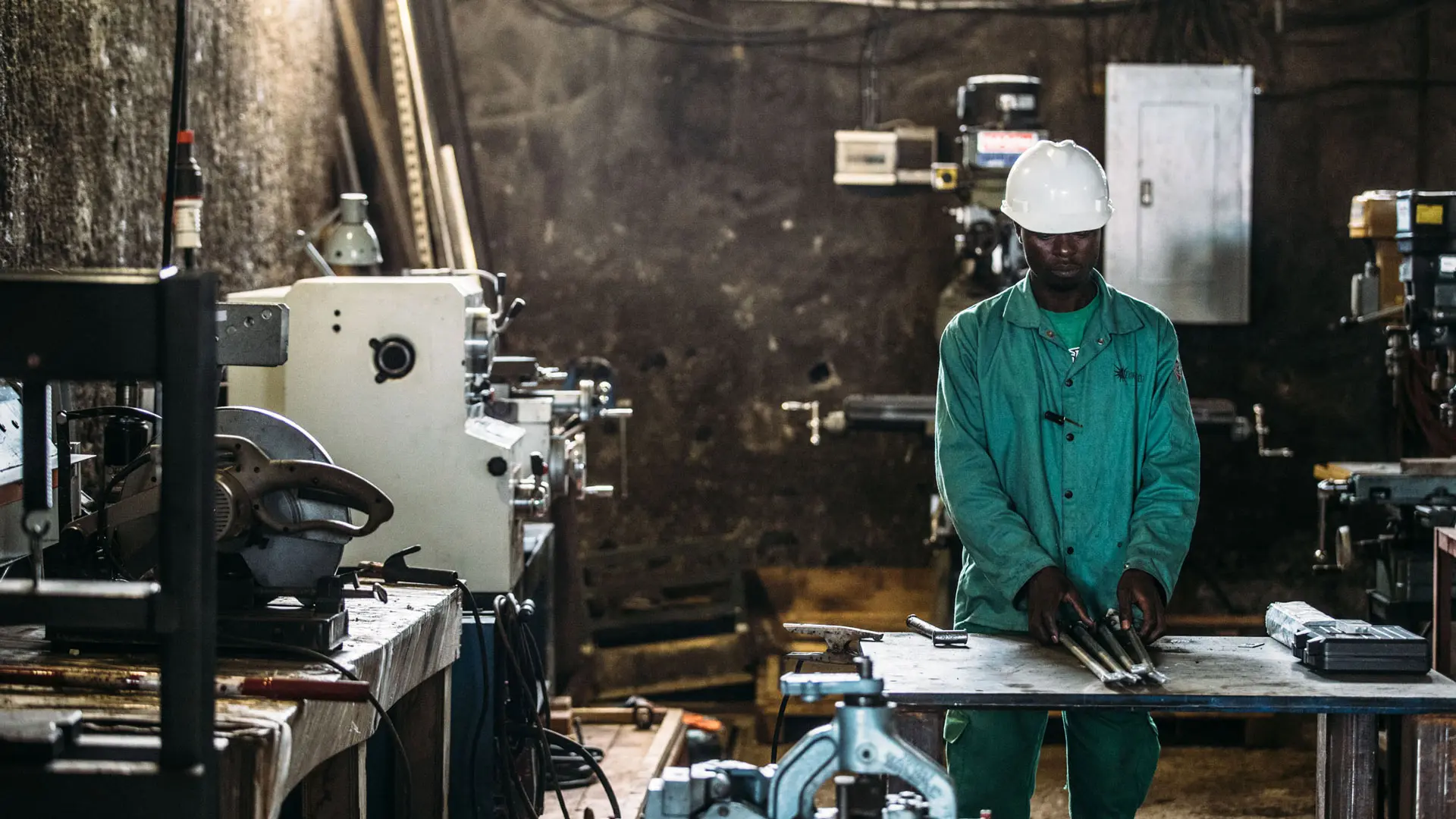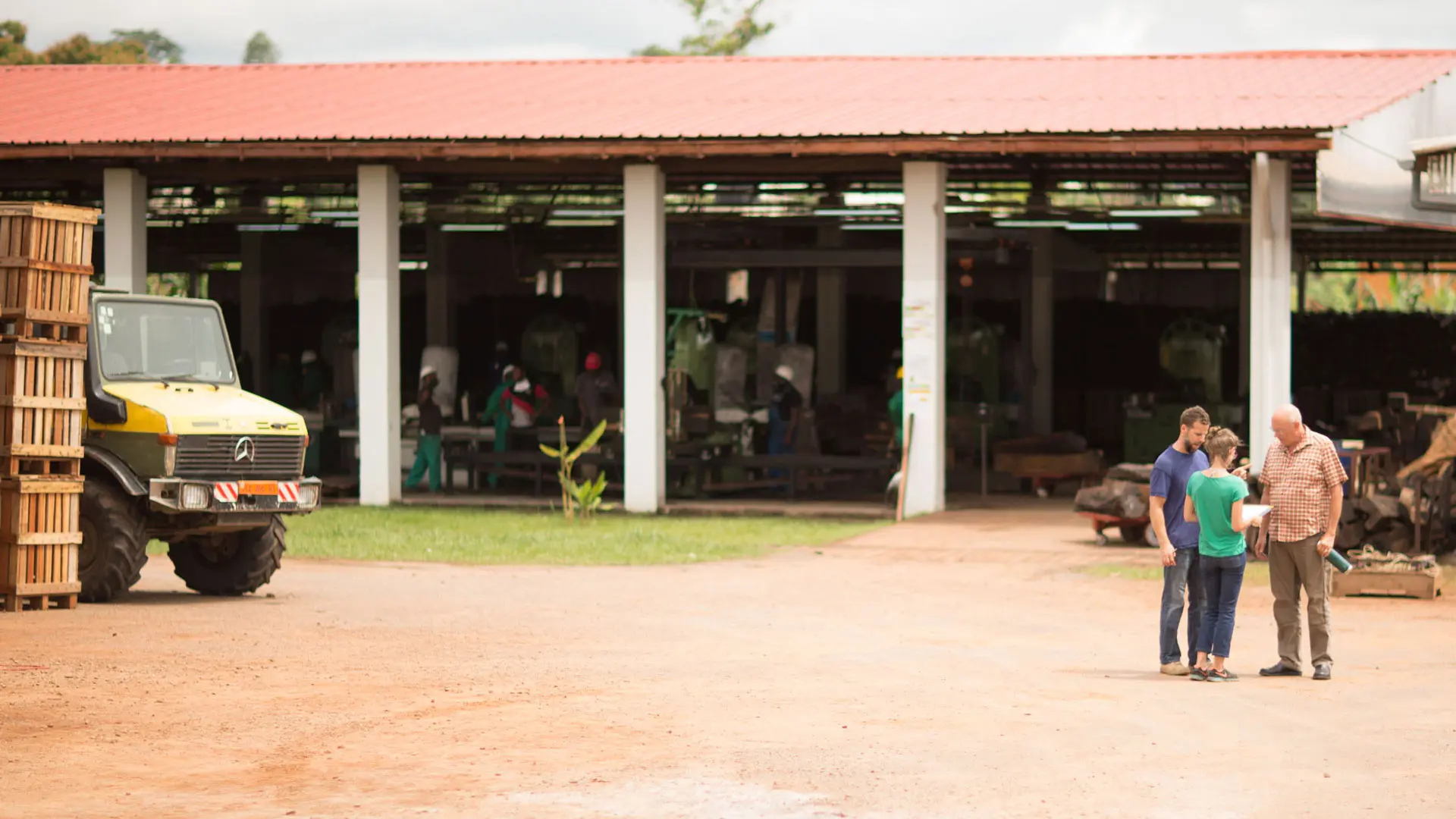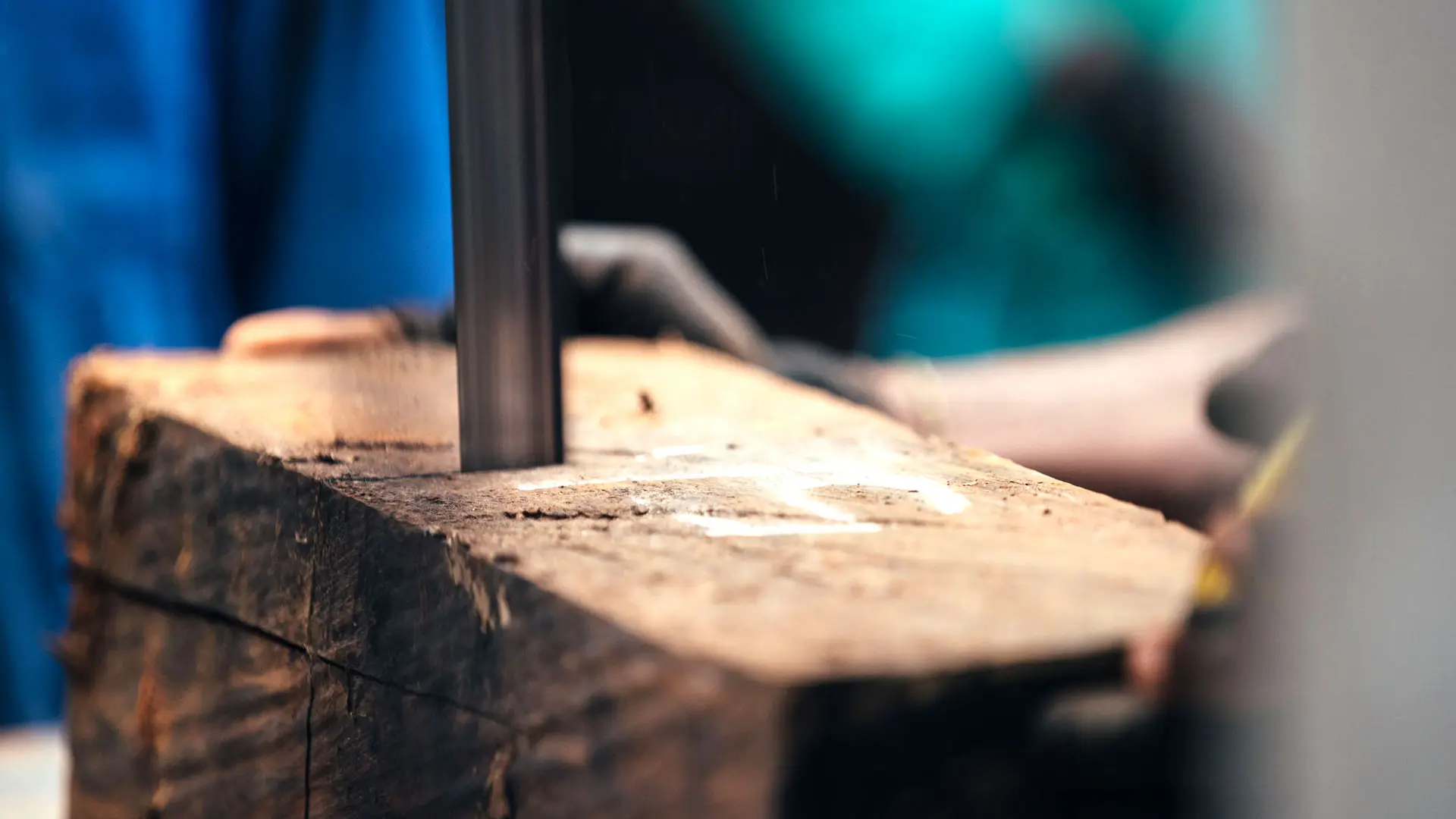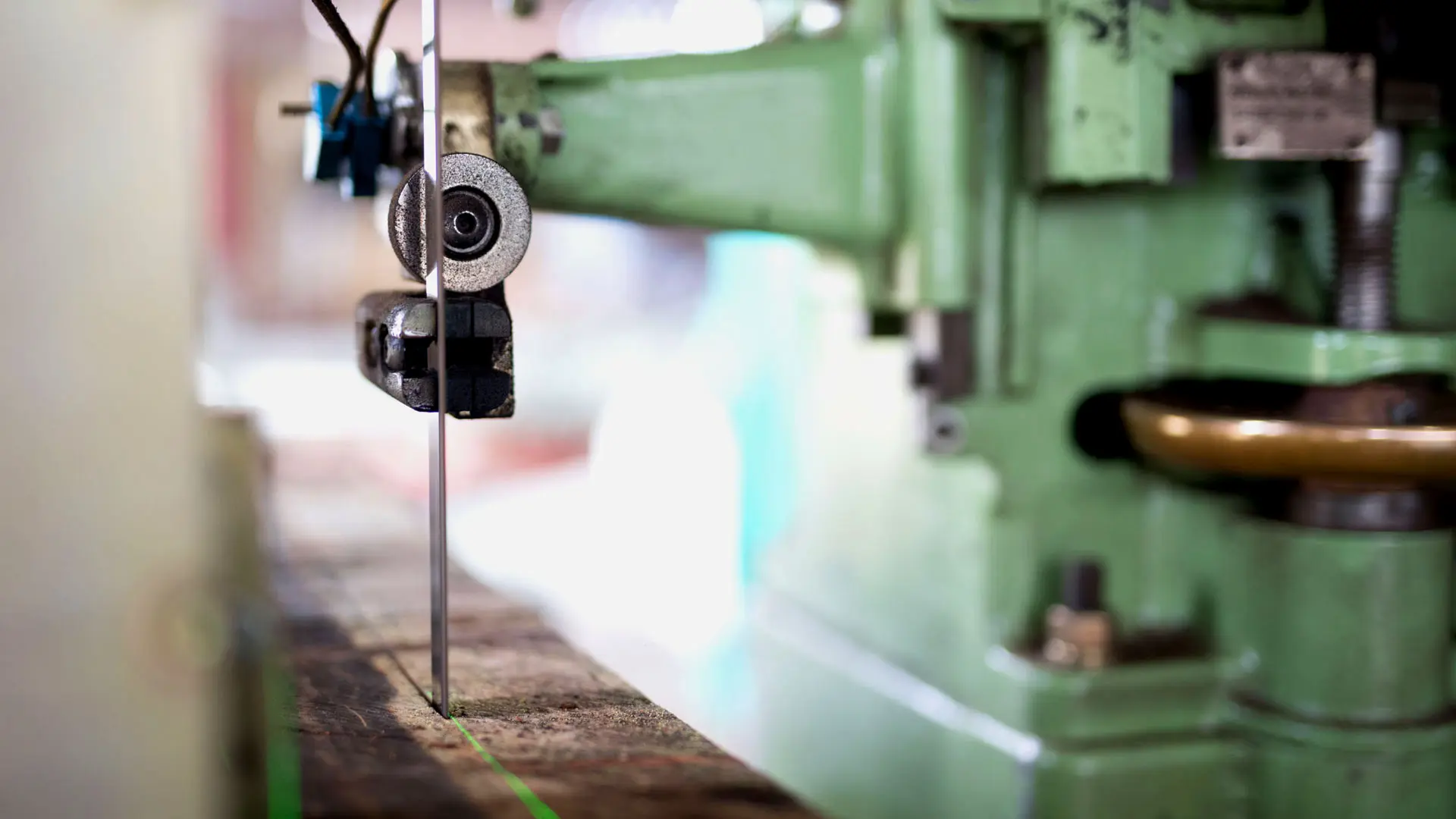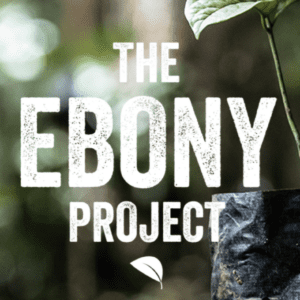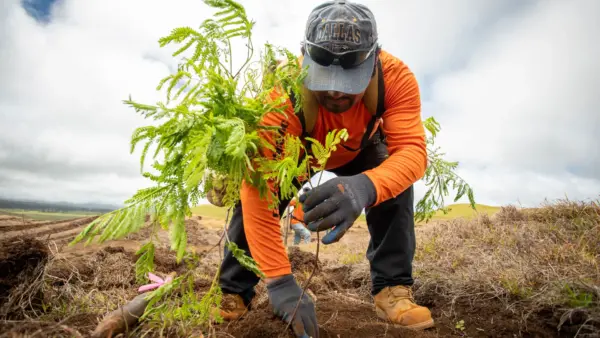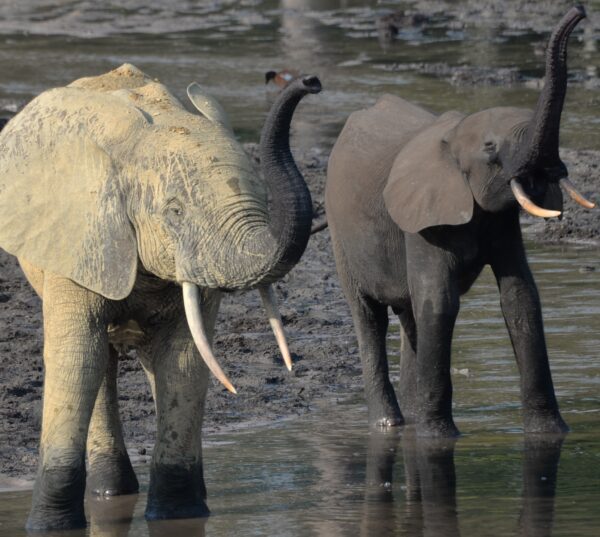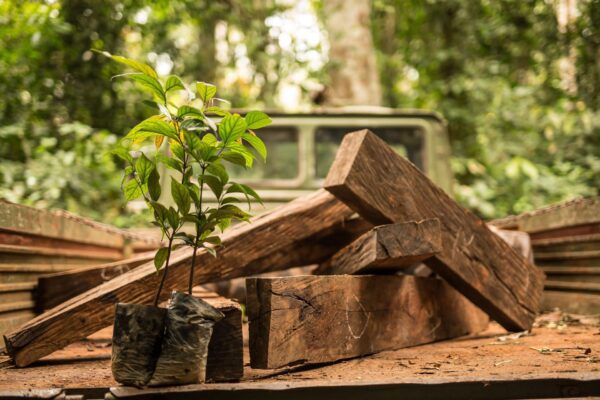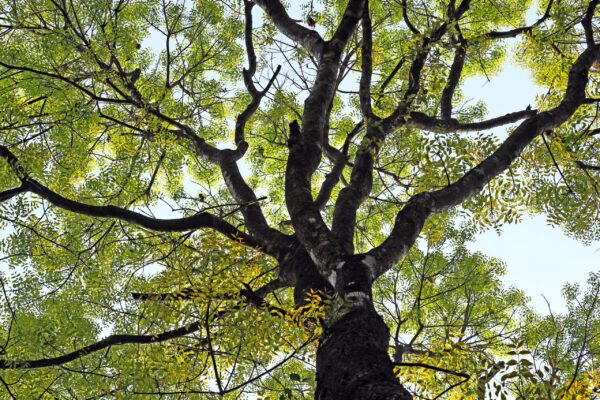Crelicam and the Ebony Project
Bob Taylor talks about sourcing ebony in Cameroon, purchasing and renovating the Crelicam sawmill, and funding a groundbreaking replanting initiative.
Transforming an Ebony Mill: The Crelicam Story
Ebony has long been a highly favored wood for makers of stringed musical instruments like guitars and violins. Its high density enables it to be finish-sanded to a smooth and durable surface, which is comfortable on the fingers, making it ideal for fingerboards. For guitars, its density also enables the solid, predictable seating of frets. At Taylor, we also use it for guitar components like bridges, headstock overlays, bridge pins and appointments like binding.
Purchasing a Mill
In 2011, Taylor agreed to purchase the Crelicam ebony mill in Yaoundé, Cameroon, in partnership with Spanish tonewood supplier Madinter. (Crelicam’s previous owner had decided to retire.) One of the primary reasons we did this was to assume direct responsibility for our ebony supply chain. For a wood that was integral to most Taylor models, this vertical integration would help us ensure that the sourcing practices were legal, ethical and more transparent.
A Surprising Discovery
Historically, the ebony used for fingerboards on musical instruments has featured a uniformly dark complexion. But in the course of meeting with sawyers in Cameroon to learn more about their efforts in the forest, we learned that many ebony trees actually have a more variegated appearance, with lighter marbling running through the heartwood. But because of a long established tradition of all-black ebony, this variegated wood had little, if any, value associated with it. The problem was that sawyers couldn’t determine the appearance of the heartwood until they felled a tree, and if it featured variegation, they would simply leave it on the forest floor. This revelation was something no one in our industry knew. Even the previous Crelicam owner didn’t know. But now we knew.
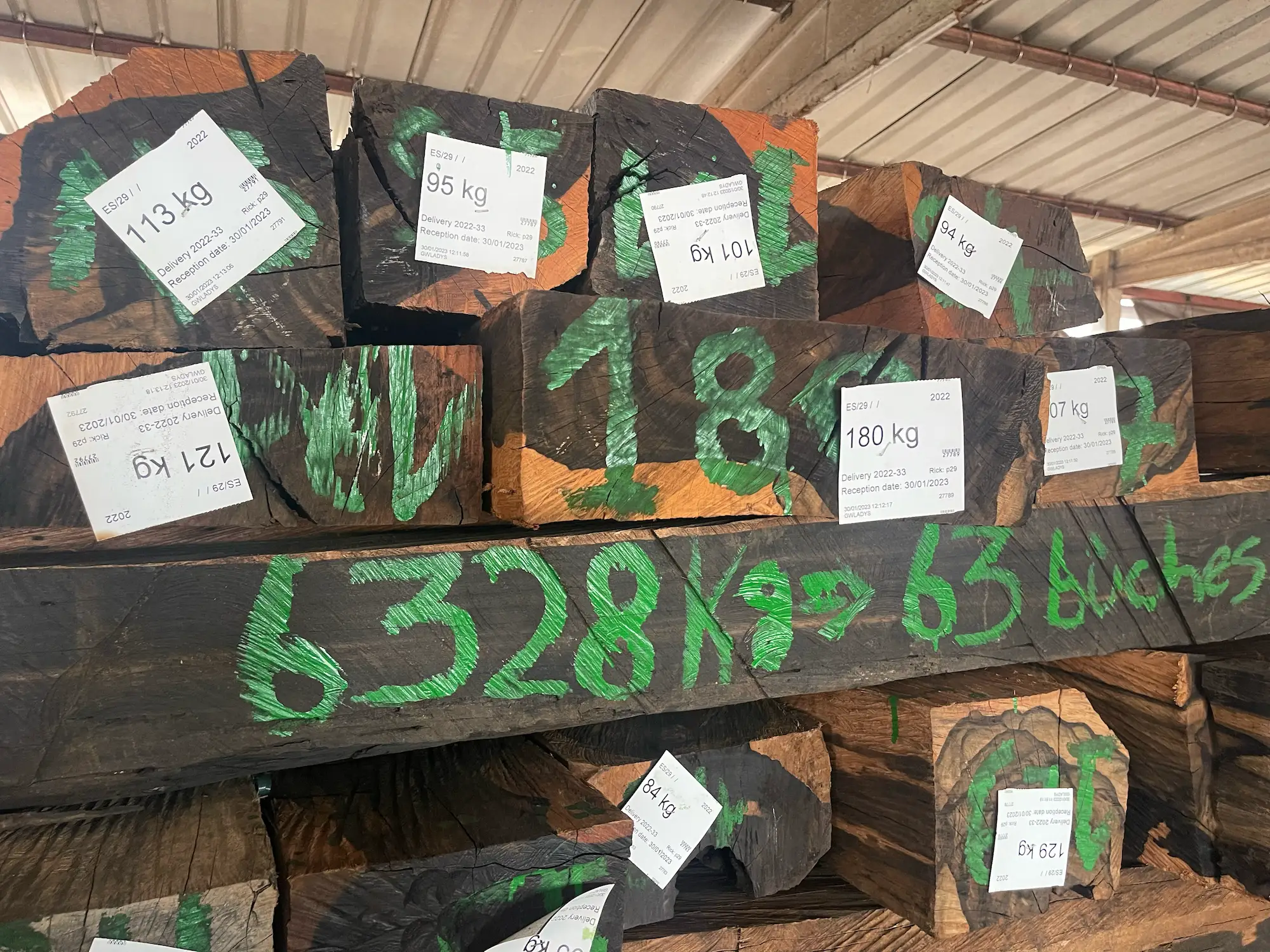
Immediately, Bob Taylor made the decision to pay higher market value for the variegated wood so it would not be wasted and to feature it prominently within the Taylor guitar line to promote adoption by customers and other instrument makers. (The variegation is purely cosmetic and doesn’t impact the function of the wood for musical performance.)
Transforming the Mill
At the Crelicam mill, the new Taylor-Madinter ownership team needed to address another pressing issue: the lack of quality equipment or skills training. Most of the machines and other equipment were in a severe state of disrepair, making them dangerous to operate and prone to breaking down. Replacement tools and parts were not readily accessible in Cameroon. The mill’s employees were also undertrained and underpaid. All of this resulted in an amount of good wood wasted.
Bob Taylor oversaw a complete renovation of the mill from the ground up, leveraging Taylor’s advanced tooling and machining capability at its California campus, buying used bandsaws and other tools, refurbishing them, shipping them to Cameroon, and traveling there with members of Taylor’s team to install them and train the mill’s employees. In addition to raising everyone’s pay and offering other benefits, they built a kitchen to provide employees with free lunch every day. One of the broader goals for the mill was to increase the value-added processing capability there and to improve efficiencies that would increase yield and reduce waste.
In 2013, our efforts were recognized with the U.S. Secretary of State’s Award for Corporate Excellence, which recognizes U.S. companies that add value to communities where they do business abroad.
Making Other Ebony Products
As part of our commitment to reducing waste, Taylor has developed other products with offcut ebony pieces that can’t be used for musical instrument parts. Doing this also supports the Crelicam operation by creating more economic value from each tree that is harvested. This is important because there is a strict limit on how much wood we are permitted to remove from the forest each year. Products include Taylor ebony guitar slides and guitar wall hangers, along with ebony knife handle blanks for Buck Knives. Bob Taylor also launched a line of beautiful ebony kitchenware called Stella Falone (named after two women who work at Crelicam).
Replanting: The Ebony Project Story
Through our work with ebony sourcing in Cameroon, Bob Taylor also became interested in replanting ebony for the future. But after starting a nursery and commissioning an independent literature review into ebony propagation, he learned that surprisingly little was known about the ecology of the species (Diospyros crassiflora Hiern) and how the tree reproduces.
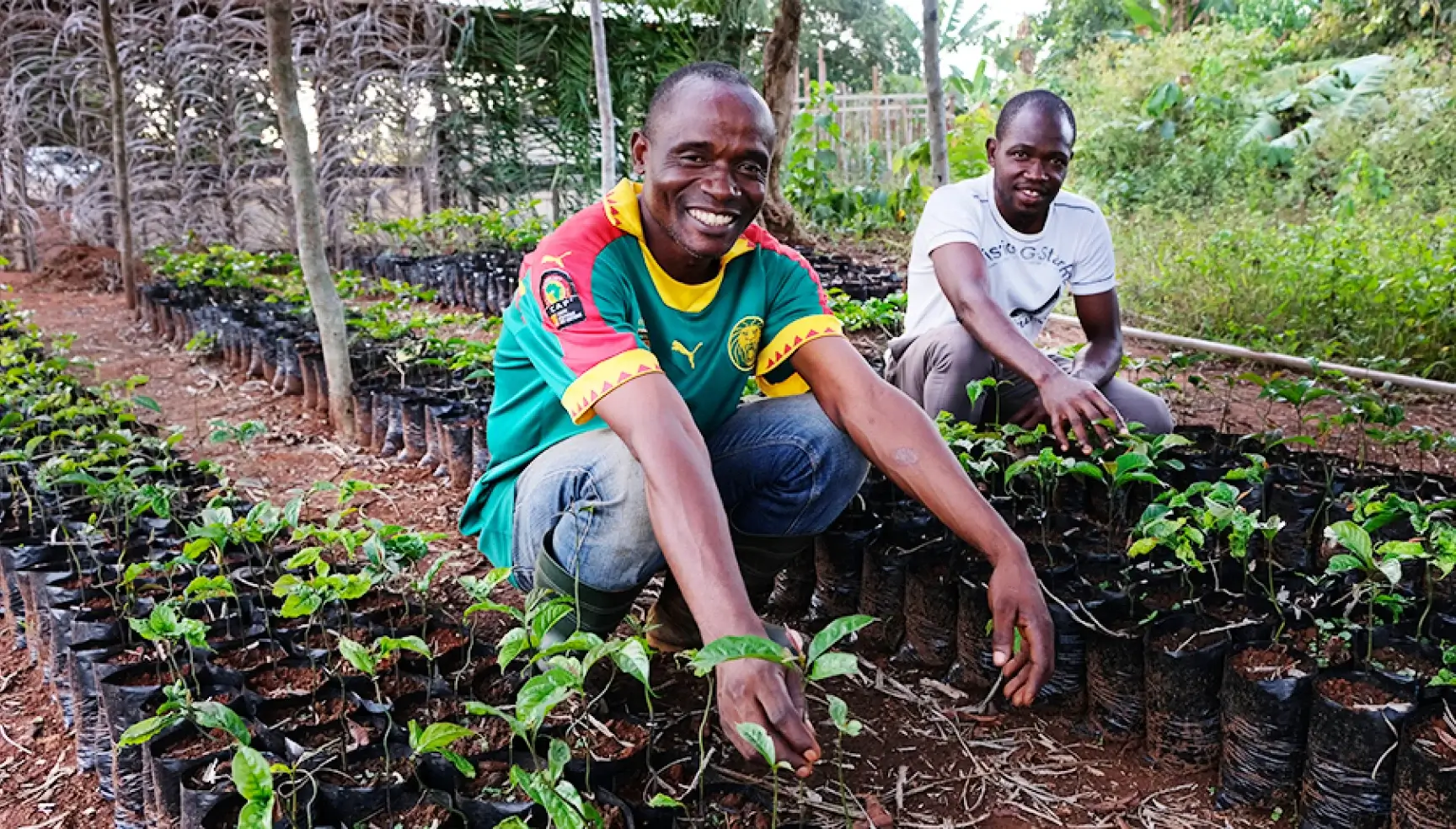
Collaborating with the Congo Basin Institute
In 2016, Bob met with UCLA biologist Dr. Thomas Smith, who had recently founded the Congo Basin Institute (CBI) in Yaoundé. Each admired the other’s accomplishments and goals, and Bob agreed to fund CBI’s first research project, which became The Ebony Project.
The initial goal was to conduct basic research into ebony ecology and to plant 15,000 ebony trees in several small communities that buffer the Dja Forest Reserve, a UNESCO World Heritage Site in southeastern Cameroon. Because food security is an important issue in this region, the plantings also include fruit trees.
The Ebony Project has since produced landmark, peer-reviewed independent research into the ecology of West African ebony and shaped the development of a scalable, community-based ebony planting and agroforestry program. The initiative surpassed its initial goal of planting 15,000 ebony trees in several communities that buffer the Dja Forest Reserve. You can take a deeper dive into the Ebony Project and read our annual reports and peer-reviewed published papers here.
Scaling Up
Since its inception, the Ebony Project has primarily been financed through the personal philanthropy of Bob Taylor, augmented by significant in-kind support from Taylor Guitars. Additional funds have been provided by the World Bank, the Franklinia Foundation and University of California schools. In September of 2021, the Ebony Project was awarded a five-year, $1 million grant as part of a broader forest conservation initiative in Cameroon funded by the Global Environment Facility (GEF). In 2022, Bob Taylor and Dr. Thomas Smith provided funds to establish an endowment to ensure that the project continues.
Ebony Project Resources
The Ebony Project is a partnership where business, communities, and researchers work together to protect a valuable timber species, reforest degraded land, and improve rural livelihoods.
To read the Ebony Project’s Annual Reports and Scientific papers please click here.
